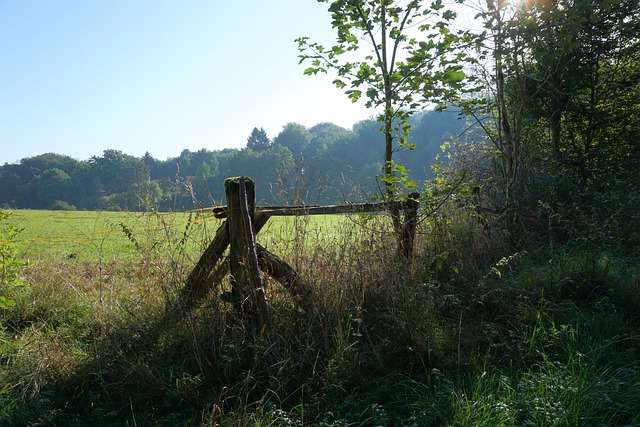In New Bedford, Massachusetts, enhancing your outdoor space with a chain link fence can offer both security and aesthetic appeal. This comprehensive guide aims to demystify the process, from understanding local regulations to finding trusted installers and maintaining your new fence. We’ll walk you through each step, ensuring you make informed decisions. By choosing local experts, you gain specialized knowledge of New Bedford’s unique requirements, top-notch craftsmanship, and peace of mind. Let’s explore how to transform your outdoor environment into a secure and stylish oasis.
- Understanding Chain Link Fence Requirements in New Bedford
- Locating Reputable Local Installers
- The Installation Process: Step-by-Step Guide
- Benefits of Choosing Local Experts
- Common Challenges and How to Overcome Them
- Maintenance Tips for Longevity
Understanding Chain Link Fence Requirements in New Bedford
When considering a chain link fence installation in New Bedford, understanding local requirements is essential to ensure your project complies with city codes and regulations. The first step is to research the specific rules and guidelines set by the New Bedford Building Department regarding fence installations. These regulations cover various aspects, including fence height, spacing, materials used, and safety features. For instance, certain areas may have restrictions on the maximum height of fences to maintain visibility and neighborhood aesthetics.
Additionally, local permits might be necessary for any structural changes or additions to your property. The permit process involves submitting detailed plans and specifications of your proposed fence design. This ensures that the installed fence meets safety standards and doesn’t encroach on public rights-of-way or interfere with nearby properties. It’s advisable to consult with local authorities and experienced fence installers in New Bedford to gain a comprehensive understanding of these requirements, ensuring a smooth and legally compliant installation process.
Locating Reputable Local Installers
When looking for reputable local chain link fence installers in New Bedford, Massachusetts, word-of-mouth recommendations from neighbors or friends can be a great starting point. Online reviews on platforms like Google, Yelp, or Angie’s List are also invaluable, providing insights into an installer’s quality of work, customer service, and reliability. Check their licensing and insurance to ensure they meet local regulations and can protect you in case of any issues.
Additionally, looking for companies that are based locally ensures a better understanding of the specific needs and challenges posed by New Bedford’s environment. Local businesses often have deeper roots in the community and are more invested in providing quality service. Ask about their experience with local conditions, such as weather patterns, to ensure they can stand behind their work over time.
The Installation Process: Step-by-Step Guide
The installation process for a chain link fence typically involves several key steps. First, the installer conducts a thorough site assessment to measure the area and determine the best layout and design for the fence. This includes considering factors like existing structures, topography, and access points. Once approved, they clear the site of any debris or obstacles and prepare the ground, ensuring it’s level and ready for construction.
Next, the installer sets up the posts, which serve as the foundation of the fence. These are strategically placed along the perimeter and driven deep into the ground to provide stability. After the posts are secure, they attach the horizontal rails, providing support for the chain link panels. The panels are then carefully fitted and secured to the rails, creating a robust barrier. Finally, the installer adds gates and latches where necessary, ensuring smooth entry and exit while maintaining security.
Benefits of Choosing Local Experts
Choosing local chain link fence installers in New Bedford, Massachusetts, offers numerous advantages. Local experts are deeply familiar with the unique needs and challenges specific to the area, ensuring your fence installation aligns perfectly with regional standards and regulations. They also understand the local climate and conditions, which is crucial for long-term durability and longevity of the fence.
Additionally, supporting local businesses contributes to the community’s growth and vitality. Local installers often provide faster response times and more personalized service compared to larger, out-of-town companies. Their strong roots in the community mean they’re invested in your satisfaction, going above and beyond to meet your expectations for quality work.
Common Challenges and How to Overcome Them
When it comes to installing chain link fences, New Bedford residents often encounter several common challenges. One of the primary issues is navigating uneven terrain and ensuring proper post placement. Local installers employ advanced equipment and techniques to tackle this, allowing for precise measurements and sturdy fence structures despite topography variations.
Another challenge lies in obtaining the necessary permits and adhering to local regulations. Installers stay updated on zoning laws and building codes, ensuring all installations comply with these requirements. They guide clients through the permit process, providing valuable insights to avoid delays or penalties, ultimately delivering seamless fence installation services.
Maintenance Tips for Longevity
Regular maintenance is key to ensuring your chain link fence remains in top condition for years to come. Start by inspecting it at least once a month, looking for any signs of damage, such as bent or missing links, rust, or holes. Promptly repairing these issues will prevent them from escalating.
Keep the fence clean by hosing it down regularly to remove dirt and debris. Apply a coat of chain link fence paint every few years to protect the metal from weathering and enhance its aesthetic appeal. Additionally, ensure proper drainage around the fence to prevent water accumulation, which can lead to rusting and corrosion.
